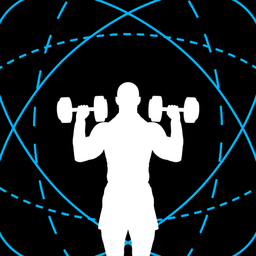Are Eggs Good or Bad for Your Cholesterol Levels?
Packed with protein. Affordable. And delicious. Sounds like a dream for your muscles ... but are eggs good or bad for your cholesterol levels?

You know how important it is to eat enough protein to build muscle.
But let’s be honest. Macro-friendly (translation: almost always dry) chicken breast can get boring after a while. Sure, there’s lean pork, beef, turkey, fish, etc., but they aren’t exactly … kind on the wallet. 💸
So, what’s a whole food protein source:
- That’ll provide your tastebuds with a respite from boring chicken breast, yet
- Is affordable?
Eggs. They’re so versatile, delicious, and easy to eat. The only problem?
They’re bad for your cholesterol. Supposedly.
But are they? In this article, we dive deep into the research to find out whether eggs are good or bad for you.
Why are eggs thought to be harmful?
It comes down to their dietary cholesterol content.
One large egg (50.3 g) contains 207 mg of cholesterol, all of which are found in the yolk.
Is that … a lot?
Well, for reference, the Dietary Guidelines for Americans used to recommend limiting dietary cholesterol consumption to 300 mg daily.
Why? Because dietary cholesterol was thought to increase blood cholesterol.
For the uninitiated, blood cholesterol is a waxy, fat-like substance that helps your body make cell membranes, many hormones, and vitamin D. There are 2 types of blood cholesterol:
- “Good” high-density lipoprotein, or HDL
- “Bad” low-density lipoprotein, or LDL
While health-beneficial in the right amounts, high levels of blood cholesterol (this applies even to HDL — like all things in life, too much of a “good” thing can be bad) may clog your arteries, leading to a:
- Heart attack
- Stroke
- Other health problems
But here comes the shocker.
Relationship between dietary and blood cholesterol = weak
Recent research shows that, for most people, the biggest influences on blood cholesterol levels are the mix of:
- Fats (eating a lot of foods high in saturated fats raises “bad” LDL cholesterol levels)
- Carbohydrates (a higher dietary intake of simple carbohydrates, notably added sugars, could lower “good” HDL cholesterol while raising “bad” LDL cholesterol levels)
… in the diet, instead of the amount of cholesterol eaten.
This is why the current Dietary Guidelines for Americans no longer set a numerical limit for the daily consumption of dietary cholesterol!
Are eggs good or bad: what does the research say?
OK, but what about eggs specifically?
The current body of evidence doesn’t support the notion that eggs are harmful to blood cholesterol levels (and, in turn, heart health).
How many eggs should you eat?
Given the current evidence, it seems that it’s safe to eat 1-3 eggs daily.
Of course, this also depends on your current health status and nutritional habits. So, it's best to check in with your primary healthcare provider for a more personalized and medically accurate recommendation.
Another thing you should note is that it isn’t just the number of eggs you eat daily that matters, but also how you’re cooking it and what you’re eating it with.
For example, holding all other things constant, deep-fried eggs will negatively impact your heart health more than hard-boiled eggs.
Something that you might be wondering about:

And eating eggs with a stack of pancakes drenched in maple syrup plus greasy bacon would be worse for heart health than having them scrambled and topped on avocado toast.
Also, IF you are worried about eating too many eggs, consider buying liquid egg whites. They’re relatively affordable, high in protein, and cholesterol-free.
You could also top up your dietary protein shortfall with protein shakes.
Learn more below:



What else to do to keep your heart healthy
Your dietary habits are just a piece of the heart health puzzle.
To keep your heart in tip-top pumping condition, there’s also sticking to a regular exercise routine (a combination of strength training and cardio exercise) to keep those blood vessels strong and regulate blood pressure.
Need help getting started?
Let GymStreak, an AI-powered workout planner + nutrition tracker, show you the way.
Here's a sneak peek:
Workout Programming + Nutrition Tracking, Off Your Hands
*sigh of relief* We'll guide you through it all — step-by-step. Just download the app, and you'll be making progress toward your dream body like never before.
References
Blesso, Christopher N., et al. “Effects of Carbohydrate Restriction and Dietary Cholesterol Provided by Eggs on Clinical Risk Factors in Metabolic Syndrome.” Journal of Clinical Lipidology, vol. 7, no. 5, 2013, pp. 463–71. PubMed, https://doi.org/10.1016/j.jacl.2013.03.008.
“Cholesterol.” The Nutrition Source, 9 June 2014, https://nutritionsource.hsph.harvard.edu/what-should-you-eat/fats-and-cholesterol/cholesterol/.
Dietary Guidelines for Americans, 2020-2025.
FoodData Central. https://fdc.nal.usda.gov/fdc-app.html#/food-details/748967/nutrients. Accessed 28 June 2024.
Fuller, Nicholas R., et al. “The Effect of a High-Egg Diet on Cardiovascular Risk Factors in People with Type 2 Diabetes: The Diabetes and Egg (DIABEGG) Study-a 3-Mo Randomized Controlled Trial.” The American Journal of Clinical Nutrition, vol. 101, no. 4, Apr. 2015, pp. 705–13. PubMed, https://doi.org/10.3945/ajcn.114.096925.
Lee, Yi, and Waqas J. Siddiqui. “Cholesterol Levels.” StatPearls, StatPearls Publishing, 2024. PubMed, http://www.ncbi.nlm.nih.gov/books/NBK542294/.
Nakamura, Yasuyuki, et al. “Egg Consumption, Serum Total Cholesterol Concentrations and Coronary Heart Disease Incidence: Japan Public Health Center-Based Prospective Study.” The British Journal of Nutrition, vol. 96, no. 5, Nov. 2006, pp. 921–28. PubMed, https://doi.org/10.1017/bjn20061937.
Nouhravesh, Nina, et al. “PROSPECTIVE EVALUATION OF FORTIFIED EGGS RELATED TO IMPROVEMENT IN THE BIOMARKER PROFILE FOR YOUR HEALTH: PRIMARY RESULTS FROM THE PROSPERITY TRIAL.” Journal of the American College of Cardiology, vol. 83, Apr. 2024, p. 1799. ResearchGate, https://doi.org/10.1016/S0735-1097(24)03789-6.
Siri, Patty W., and Ronald M. Krauss. “Influence of Dietary Carbohydrate and Fat on LDL and HDL Particle Distributions.” Current Atherosclerosis Reports, vol. 7, no. 6, Nov. 2005, pp. 455–59. PubMed, https://doi.org/10.1007/s11883-005-0062-9.
Zazpe, I., et al. “Egg Consumption and Risk of Cardiovascular Disease in the SUN Project.” European Journal of Clinical Nutrition, vol. 65, no. 6, June 2011, pp. 676–82. PubMed, https://doi.org/10.1038/ejcn.2011.30.


